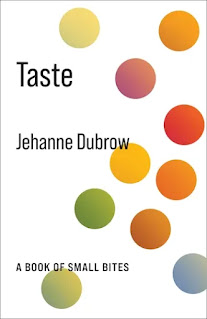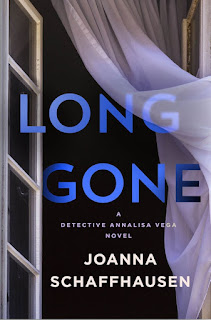 Jehanne Dubrow is a professor of creative writing at the University of North Texas. She is the author of nine poetry collections, including most recently Wild Kingdom (2021), and a book of creative nonfiction, throughsmoke: an essay in notes (2019). Her poems and essays have appeared in Poetry, New England Review, Colorado Review, and the Southern Review.
Jehanne Dubrow is a professor of creative writing at the University of North Texas. She is the author of nine poetry collections, including most recently Wild Kingdom (2021), and a book of creative nonfiction, throughsmoke: an essay in notes (2019). Her poems and essays have appeared in Poetry, New England Review, Colorado Review, and the Southern Review.
Dubrow's new book is Taste: A Book of Small Bites.
Recently I asked the author about what she was reading. Her reply:
My reading is often shaped by my writing. So, for instance, I’m currently working on a biblio-memoir about my long-term love affair with Anne Carson’s novel in verse, Autobiography of Red. I’ve spent theVisit Jehanne Dubrow's website and learn more about Taste: A Book of Small Bites.last two decades reading and rereading Red. The book has molded who I am as a reader, as a teacher, and as a writer. Over the past twelve months, I have pretty much read everything Carson has ever written. For a newcomer to Carson’s oeuvre, I recommend her scholarly book about desire, Eros the Bittersweet, her fascinating collaged elegy for her brother, Nox, and of course Autobiography of Red. Carson is a poet, a scholar, a translator, and a maker of unclassifiable texts. This deep immersion in her work has encouraged me to be more playful in my own writing, to experiment with blending or ignoring genre, and to write about experiences I’ve been afraid to tackle in the past.
I’ve also just begun to work on a proposal for a book I’m tentatively calling Frivolity: A Defense. In trying to figure out how and why I should defend frivolous things, I’ve been reading about high fashion, light-as-air desserts, fluffy dogs, and other things that might be called frivolities. Right now, I’m working my way through Sianne Ngai’s Our Aesthetic Categories: Zany, Cute, Interesting, a really engaging scholarly examination of how certain contemporary aesthetic experiences have more value, meaning, and weight than we might initially imagine.
Finally, I’m finishing up a book of poems, Civilians, which is about the experience of watching my husband retire from the militaryafter a twenty-year career in the Navy. This manuscript considers what happens to a military marriage when one spouse is no longer uniformed and the other no longer carries the label of “dependent.” Because Civilians focuses on physical and emotional transformations, the book is very much informed by Ovid’s Metamorphoses. I’ve been reading the Charles Martin translation, which is very accessible but beautiful too.
Coffee with a Canine: Jehanne Dubrow and Argos.
Coffee with a Canine: Jehanne Dubrow & Lola and Bandit.
--Marshal Zeringue






















